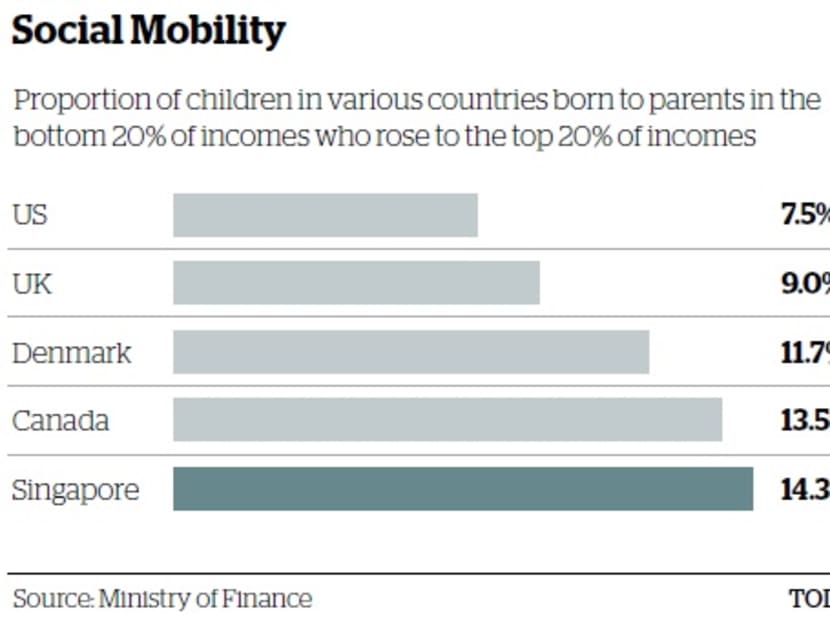S’pore ‘more socially mobile’ than US, UK
SINGAPORE — The Republic remains a relatively fluid society in terms of social mobility, with 14.3 per cent of young adults who began life in the bottom 20 per cent of income groups reaching the top 20 per cent of incomes later on, said Deputy Prime Minister Tharman Shanmugaratnam yesterday.
SINGAPORE — The Republic remains a relatively fluid society in terms of social mobility, with 14.3 per cent of young adults who began life in the bottom 20 per cent of income groups reaching the top 20 per cent of incomes later on, said Deputy Prime Minister Tharman Shanmugaratnam yesterday.
In comparison, 7.5 per cent of adults in the United States and 9 per cent in the United Kingdom moved up the income ladder in a similar way, Mr Tharman, who is also the Finance Minister, told Parliament as he wrapped up three days of debate over the Budget.
The figures he cited are generally based on the incomes of young adults in their late 20s and early 30s.
Mr Tharman noted that social mobility has become an increasing challenge for advanced societies, and cultures and backgrounds affect how people progress in life. “However, not everything is equal. There is what is called the lottery of birth.”
In the past two decades, affluent parents in advanced societies have also been investing more in their children earlier in life. “We cannot help these natural workings of society, but we want to give the best chance for someone who starts off with a low-income background or middle-income background, or any disadvantage, to move up and to make sure that we remain a fluid society,” said Mr Tharman.
He pointed to the various measures to help the needy and vulnerable groups in Singapore, from subsidies in pre-school fees to bursaries for tertiary education.
Even in primary schools, the authorities have made greater investments in students who have a weak start — 2.5 times as much in real terms as five years ago.
The initiatives include introducing allied educators and learning support programmes to boost students’ literacy and numeracy skills. Special needs schools have also seen spending rise by 50 per cent over the past five years, due to funding in areas such as curriculum development and professional growth of educators, Mr Tharman said.
He also highlighted the importance of creating diverse pathways to promote social mobility. “People have different strengths (and) different interests. And by providing more diverse pathways, we maximise our chances of social mobility,” Mr Tharman said. Ng Jing Yng







